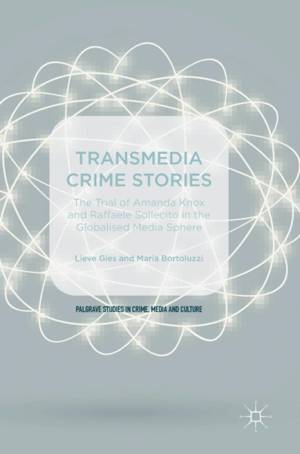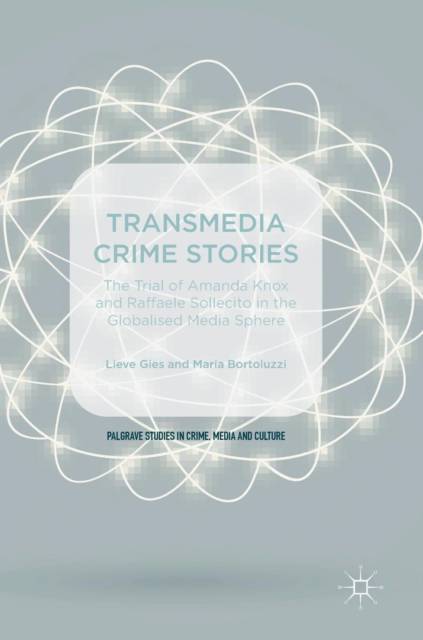
Door een staking bij bpost kan je online bestelling op dit moment iets langer onderweg zijn dan voorzien. Dringend iets nodig? Onze winkels ontvangen jou met open armen!
- Afhalen na 1 uur in een winkel met voorraad
- Gratis thuislevering in België vanaf € 30
- Ruim aanbod met 7 miljoen producten
Door een staking bij bpost kan je online bestelling op dit moment iets langer onderweg zijn dan voorzien. Dringend iets nodig? Onze winkels ontvangen jou met open armen!
- Afhalen na 1 uur in een winkel met voorraad
- Gratis thuislevering in België vanaf € 30
- Ruim aanbod met 7 miljoen producten
Zoeken
Transmedia Crime Stories
The Trial of Amanda Knox and Raffaele Sollecito in the Globalised Media Sphere
€ 183,45
+ 366 punten
Omschrijving
This collection focuses on media representations of Amanda Knox and Raffaele Sollecito, defendants in the Meredith Kercher murder case. Adopting a multidisciplinary approach, encompassing criminology, socio-legal analysis, critical discourse studies, cultural studies and celebrity studies, the book analyses how this case was narrated in the media and why Knox emerged as the main protagonist. The case was one of the first transmedia crime stories, shaped and influenced by its circulation between a variety of media platforms. The chapters show how the new media landscape impacts on the way in which different stakeholders, from suspects and victims' families to journalists and the general public, are engaging with criminal justice. While traditional news media played a significant role in the construction of innocence and guilt, social media offered users a worldwide forum to talk back in a way that both amplified and challenged the dominant media narrative biased in favour of a presumption of guilt.
This book begins with a new and original foreword written by Yvonne Jewkes, University of Brighton, UK.
This book begins with a new and original foreword written by Yvonne Jewkes, University of Brighton, UK.
Specificaties
Betrokkenen
- Uitgeverij:
Inhoud
- Aantal bladzijden:
- 236
- Taal:
- Engels
- Reeks:
Eigenschappen
- Productcode (EAN):
- 9781137590039
- Verschijningsdatum:
- 19/12/2016
- Uitvoering:
- Hardcover
- Formaat:
- Genaaid
- Afmetingen:
- 152 mm x 213 mm
- Gewicht:
- 430 g

Alleen bij Standaard Boekhandel
+ 366 punten op je klantenkaart van Standaard Boekhandel
Beoordelingen
We publiceren alleen reviews die voldoen aan de voorwaarden voor reviews. Bekijk onze voorwaarden voor reviews.










